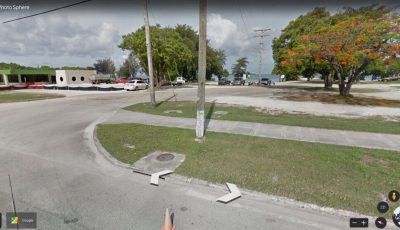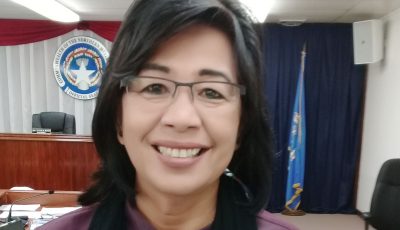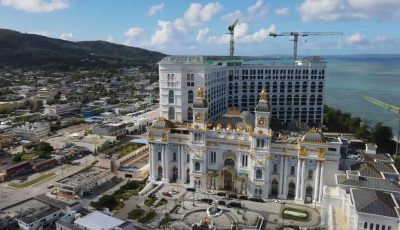Judge: Issues need to be resolved in land compensation case
Associate Judge David A. Wiseman said Friday that a recent CNMI Supreme Court ruling in a land case, Commonwealth v Lot No. 343, raises issues relevant to the Quitugua case.
In the absence of government payment to Quitugua, Wiseman ordered Quitugua and the Office of the Attorney General to research the law and issues brought forth in the recent high court ruling.
Wiseman said the specific law and issues are: The government holding title without full payment or a certain and adequate method of payment to Quitugua; and Quitugua’s entitlement to post-judgment interest from the government.
Wiseman ordered the parties to return to court to discuss these issues on July 12, 2012, at 1:30pm for a further status conference.
Wiseman ordered the government in August 2005 to pay Quitugua the principal sum of $77,137 plus interest at 3 percent per annum and post-judgment at 9 percent in compensation for the lots taken from her.
When the government failed to pay the judgment, Quitugua asked the court in December 2009 to issue an order that will help her collect the compensation.
Despite 15 consecutive hearings, the landowner still failed to get relief from the court. This prompted Quitugua’s family in April 2012 to close a portion of Santa Lourdes Road where the lots are located. At the time, Quitugua said she has received from the government nothing but promises for 27 years.
On May 16, 2012, Wiseman held a hearing where the parties discussed post-judgment enforcement issues against the government. Assistant attorney general David Lochabay represented the government at the hearing. Quitugua appeared without a lawyer. Her son Elbert served as her counsel.
In his order issued Friday, Wiseman said his final judgment confirmed an agreed upon amount by the Department of Public Lands and Quitugua to pay her for the taking of her land for public domain.
Wiseman said DPL, through its attorney, raised the legal issue that payment of the judgment should not come from DPL but from the Commonwealth Treasury. DPL took this issue to the CNMI Supreme Court, which decided that it is the government and not DPL that is responsible for this judgment.
Thereafter, Wiseman said, the government, represented by its attorney, appeared in court for several status conferences on the issue of payment on the judgment.
At these hearings, the government expressed its helplessness in satisfying the judgment in view of a statute which provides that a final judgment against the government shall be paid only if the Legislature appropriates money for it.
Wiseman said that Quitugua was the owner of a property taken from her under eminent domain and had been promised to receive compensation from the Commonwealth as documented by the final judgment.
“A prejudgment partial payment was initially made, leaving the balance owing. .Since that time, Ms. Quitugua has approached years of elderly age and desires to be paid on the judgment during her lifetime,” Wiseman said.
The judge noted that the recent Supreme Court ruling raises issues applicable to the proceeding of Quitugua’s case. He cited Title I of Commonwealth Code Section 7207, a statute that has counterparts in other U.S. jurisdictions, which requires that the payment of the judgment can only be satisfied by legislative appropriation.
The Legislature has not made any appropriations for payment to Quitugua.
Wiseman said the Supreme Court’s recent ruling held that the statute, Section 7207, is not unconstitutional.
Wiseman said the High Court’s ruling, however, raises issues as to whether or not the government is entitled to have title to the property taken under eminent domain when full compensatory payment has not been made.
The judge said he does not have any record of a judicial deed of the property transferring to the Commonwealth.
Wiseman said, however, that according to the High Court decision, when the government takes title prior to the payment of post-compensation, the government must provide a future certain and adequate method of obtaining compensation.
Without full compensation, the title must remain with the property owner until the Commonwealth appropriates or otherwise guarantees the necessary funds for Quitugua’s land, said Wiseman.
As for post-judgment interest, Wiseman said the government is generally exempt from post-judgment interest. However, he said, the High Court ruling held that the rule against the accrual of post-judgment interest against the government does not apply in a situation where “the government has taken property without payment of just compensation.”
“Therefore, it appears Ms. Quitugua, under these circumstances, may be entitled to post-judgment interest from the Commonwealth,” Wiseman said.
By Ferdie de la Torre
Reporter



























